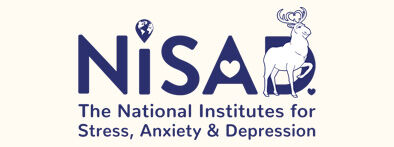When do you become a parent?
- Is it when the baby arrives in the world and you meet her or him face-to-face?
- Is it the moment that pregnancy is confirmed?
- Or is it the moment you hear your baby’s heartbeat for the first time?
The moment when you feel, “right, I’m a mother” can vary greatly from person to person.
In many ways it’s helpful that a woman and her partner have almost a year to adjust to the realities of becoming parents. This is a huge transition in a woman’s life involving intricate physical changes and complex emotional shifts over the entire period of time.
It is highly likely that we will experience a change of identity during pregnancy – perhaps a minor shift but often a major shift.
So what are some of the reasons for this change in identity during pregnancy?
Hormones
As a biological necessity, oestrogen and progesterone increase, among other hormones. One of the functions of oestrogen is to trigger the growth of several organs and other bodily systems in the foetus. And one of the key functions of progesterone is to keep the uterus muscle relaxed and prevent your body’s immune system rejecting the foetus.
While changing hormones perform essential functions, they also impact a woman’s moods and emotions and have a tremendous impact on the way we feel physically.
Loss of independence
It could be that the physical demands of pregnancy mean that you need to ask for help more often than you are used to. This can be hard for someone who feels like an independent adult in the world.
It could also be that, in thinking about the future, you anticipate a loss of income related to the baby’s arrival. This can also be a tough transition for someone who feels a sense of self-reliance due to their financial independence.
Shift in priorities
Linked to the loss of independence, you suddenly have this extra person in your life to consider. A tiny person, but still somebody who relies on you to stay alive. A tiny person who often alerts you to their presence – through kicking, hiccups or simply a difficulty in tying your shoelaces.
This can feel like a massive responsibility. Some women are ready for this change quickly and some women need a bit more time to adjust to this new reality.
Other people’s responses
Other people in our lives are often more than willing to share their opinions about our pregnancy. This can range from joy and happiness to judgement about the timing of our pregnancy.
While it is most often inappropriate for other people to feel negatively affected by our pregnancy, there can be people who change their behaviour towards us as a result.
How much you are affected by someone else’s opinions can depend on your relationship with them, but if you are feeling extra-sensitive (due to hormones), be aware that you may feel disappointed by other people’s reactions.
Where there are two parents involved, the other parent (whether male or female) will also be experiencing their own hormonal changes during the pregnancy.
This could mean a kind of renegotiation of how you relate to each other and reflection on the impact of this new extra little person on your relationship going forwards.
So how do we cope with all of this?
Pregnancy is often a time of deep inward reflection and it is an important time to prioritise self-care.
Take this time to think about your change of identity:
- Who are you?
- What kind of parent do you want to be?
- Does this change of identity feel like a loss?
There are three ways to work through this:
Give yourself time – which is exactly what pregnancy gives you. Some of your behaviours will need to change but you can feel your way into your new identity and work out what’s important for you.
Do things that feel good – spend time with people who give you energy and nurturing. Engage in your favourite hobbies. Exercise regularly at a pace that feels right for you. All of these actions support your mood by boosting your serotonin levels. And when your mood is lifted, it feels easier to deal with other challenges.
Ask for help if you need it. – Asking for help is a sign of strength and shows your level of responsibility towards yourself and your developing baby. There are many sources of support whether friends or family, ante-natal services or speaking with a therapist.
So whenever it is that you first feel like a parent, whenever you feel like your life has changed forever – this is your identity shifting and finding a new shape. There is no such thing as the “perfect pregnancy”.
Remember:
You do not have to struggle with challenging moments alone.
You can find ways to support yourself and you can ask for support from others.
Pregnancy may come with ups and downs but overall, it is possible to have a good experience.

Janine Miller
Clinical Director at NISAD Lund, Sweden
MSc Psychotherapy, Certified Transactional Analyst (CTA)


